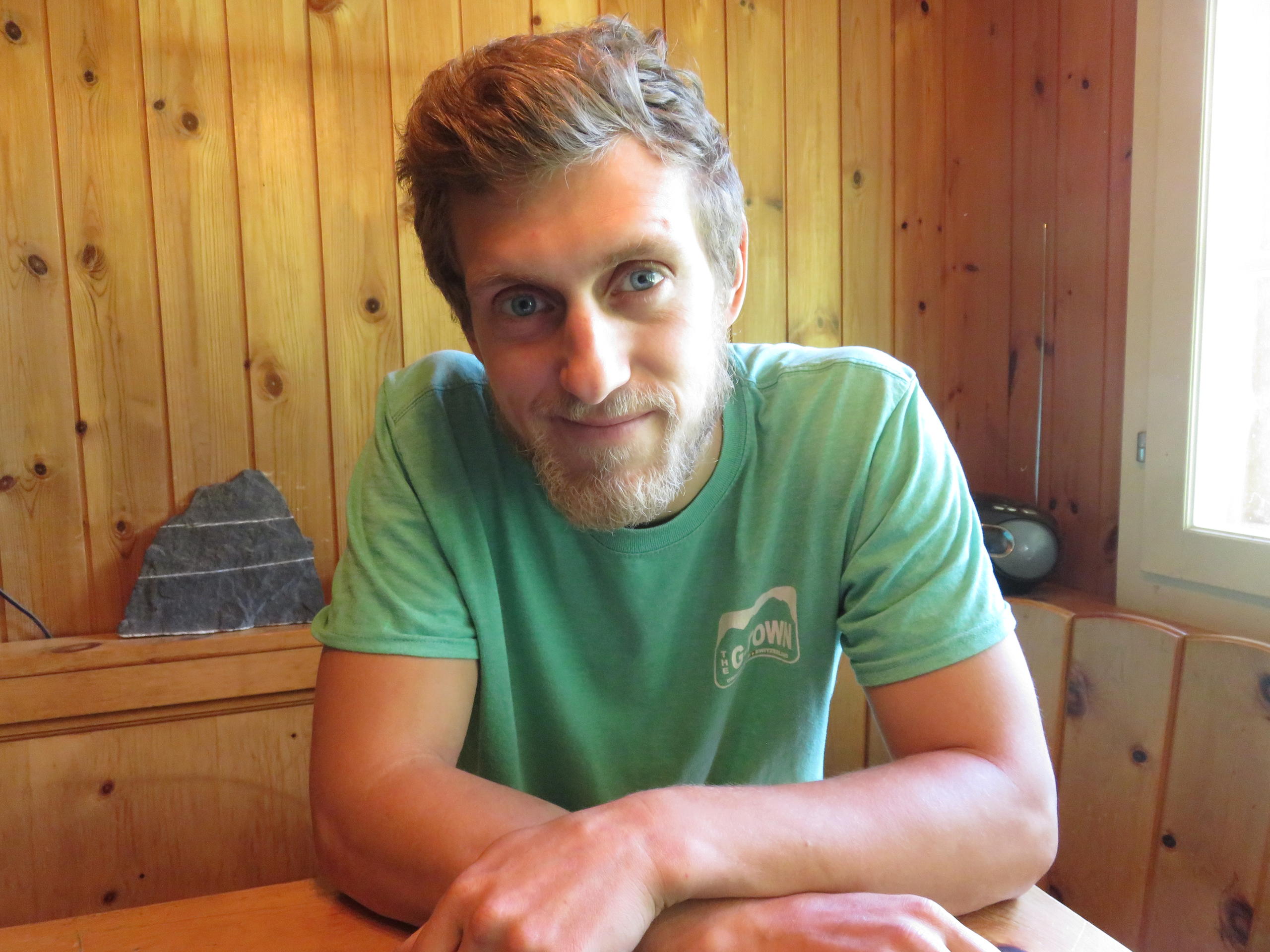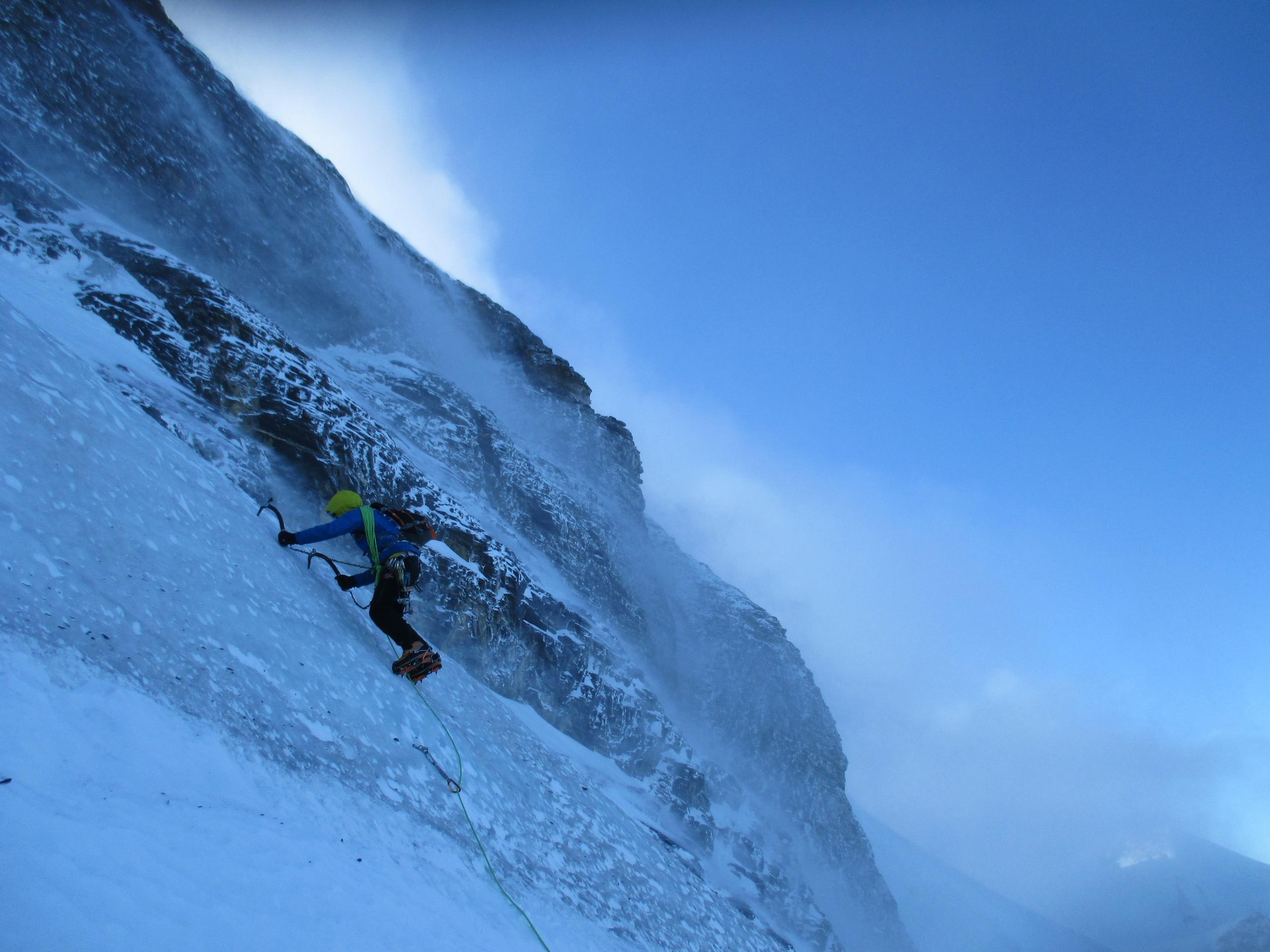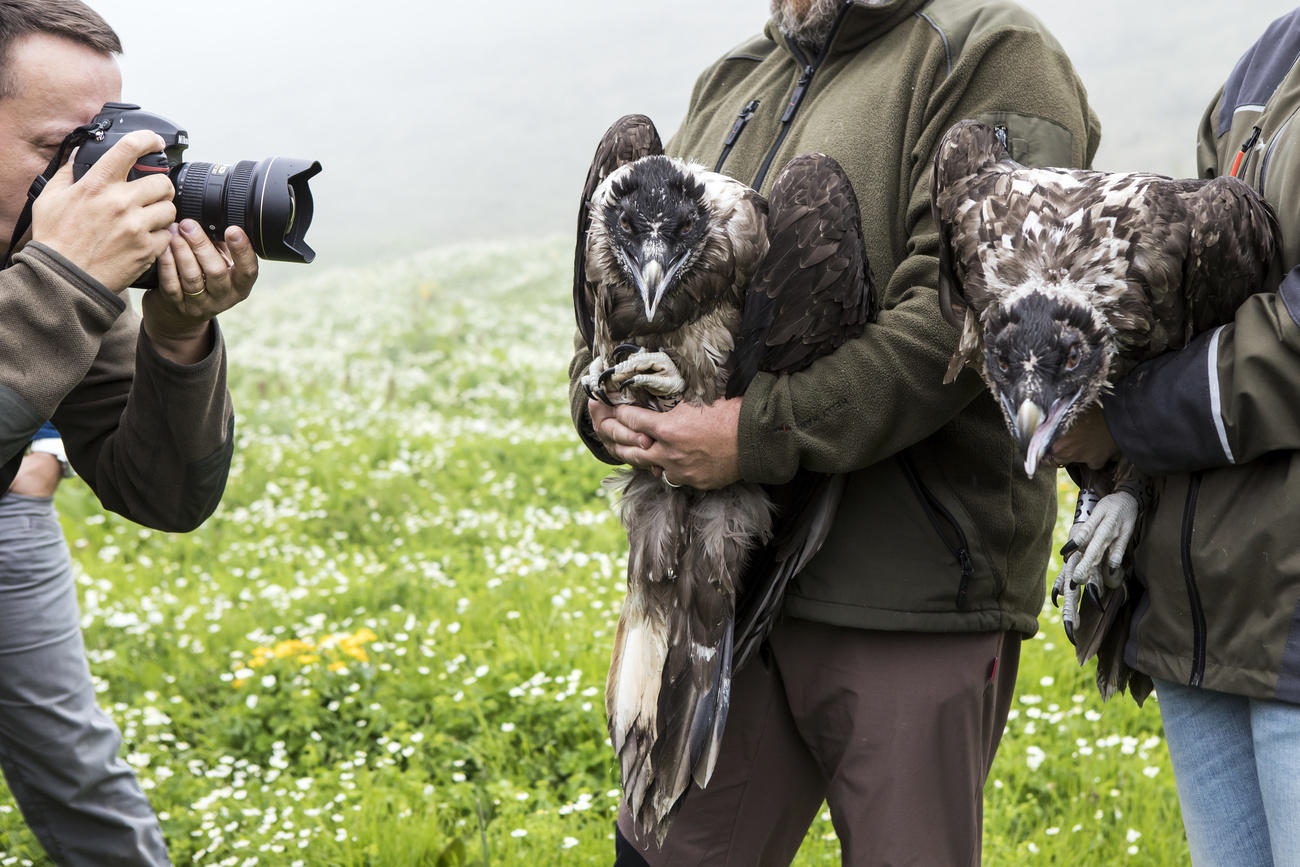Climbing among falling mountains
There are people in the Alps who have mastered the balance between life in the mountains, and life at home. Climber Dan Moore explains why he doesn't count himself among them.
In the mountains, you have only two choices: go up or down. On a micro level you take this step or that, one of which may lead you home safely, the other of which may kill you.
The mountains can be brutal in this respect, but they are also brutally honest. Though unforgiving of total negligence, they are ready to offer unmistakable, instant feedback for any minor errors and provide an unbiased reflection of your personal character at any given moment – how did you act when the weather turned bad – methodically, recklessly? To me, the human world seems infinitely more complex and confusing in comparison. Not to mention how full it is of endless tasks and the focus on material gain.
Physically, the mountains offer very little in return for my efforts. They might even require me to leave material behind; a rope might become irretrievable and have to be cut. At worst they might, tragically, take a friend away from me. But spiritually, emotionally they give me more in one day than I could ever dream of acquiring through a lifetime in the material world. They prove that the greatest gifts in life are in fact immaterial: gifts of experience, joy; feelings of good health. A day in the mountains is like a drawn-out defibrillator shock to the heart. The clean air fills my lungs and despite the external cold, a deep warmth invariably permeates my body and soul.
Kick. Step. Breathe, “Aaaahhhh”. Grab this hold. Pull up. Secure the rope. Repeat.
I diminish the self through the art of movement. Begin to feel ‘in flow’.
Back home I am stuck with this ‘self’ and all its babbling rhetoric; those unanswerable and often pointless questions: “What if this or that?” Then there’s the garden to be tended to, the apples to be picked, computer work to be done, clothes to wash, family to see, groceries to buy, bills to pay, letters to write, cars to fix, cats to feed, books to read … the list is overwhelming.

With so many things to do, I often find myself running in circles, doing nothing for half the time; not knowing where to begin. Or standing at the window looking longingly up at the Eiger, watching the clouds stream over it, the rock turning red in the evening’s Alpine glow.
It’s easy if there’s a mountaineering trip to plan. I can sneakily divert my attention to checking various weather apps for the tenth time that day, like a forecast zombie. Pore over maps and guidebooks, plot routes. Or hide in the gear room sorting through climbing hardware; sharpen ice picks and crampon points. Check ropes for abrasion. I could argue that my life will depend on these things, and won’t by comparison, depend on wet washing that should be hung up to dry, or that important email that needs to be sent. But what if there were no more trips to plan? What then?
The mountains have always been dangerous. To enter into their domain is to accept a certain level of risk.

Yet over the past few years, it seems mountains have been accepting their true purpose – falling down. I still remember what my geography teacher told me in high school: That all matter on earth is trying to get to its core. If there is nothing in the way and as long as weathering occurs, it will eventually succeed.
As the glaciers grew, they re-shaped gentle mountain slopes into vertical rock bastions, filled up the valleys in between and acted as a brace to hold the rocks in place. Now the ice is shrinking so there’s certainly less standing in their way. It’s ironic that while I strive to reach great heights, the mountain’s own goal is to end up at the bottom of the sea.
Of course, there will always be climbing. But big days out among ice giants? It’s going to get a lot more dangerous out there, certainly during my lifetime, and we’re going to have to be smart. Should I even continue down this path? Maybe I should go back to the drawing board. Head down to the job centre.
I can picture it now. A waiting room full of alpinists and mountain guides, waiting to fill out forms. Uncomfortable with office furniture. Some sitting cross-legged on the windowsill, or on top of the filing cabinets. Others making tea in their camping stove. One laying out his camping mat and taking a nap. Another pencilling in routes on the city map. All there in body, while their minds are elsewhere, straining against the wind on some sublime glacial plateau of their memory. An ice axe in the umbrella stand, praying not to be forgotten.
The thought terrifies me.

In compliance with the JTI standards
More: SWI swissinfo.ch certified by the Journalism Trust Initiative


You can find an overview of ongoing debates with our journalists here. Please join us!
If you want to start a conversation about a topic raised in this article or want to report factual errors, email us at english@swissinfo.ch.